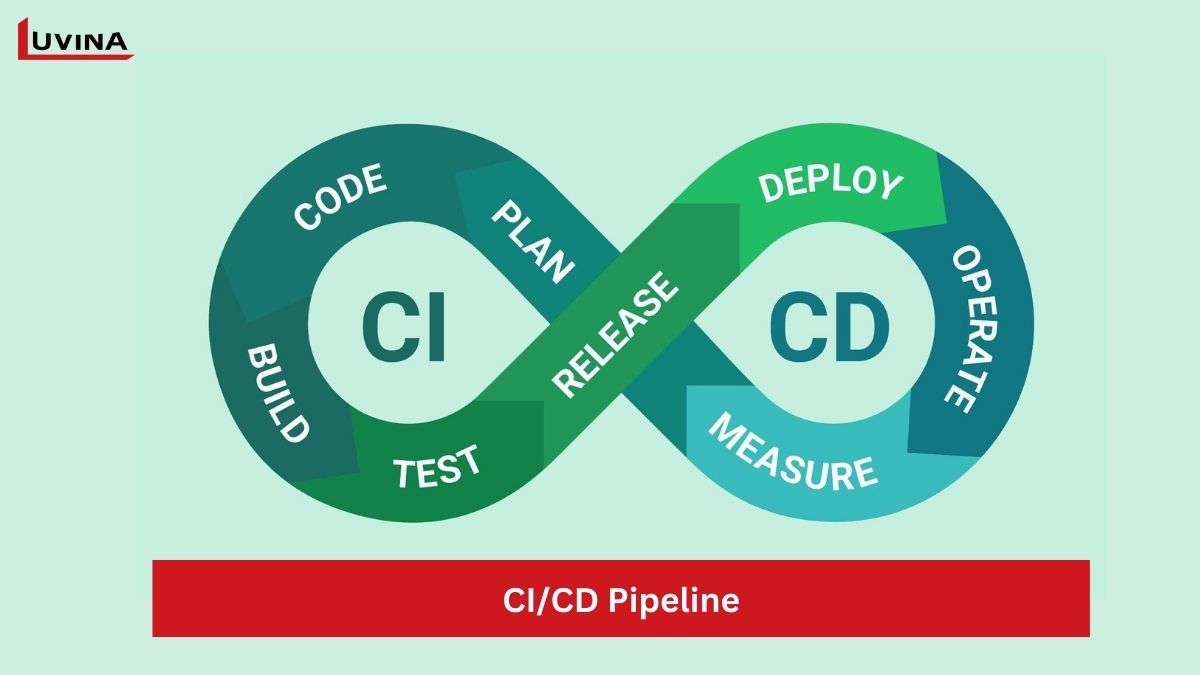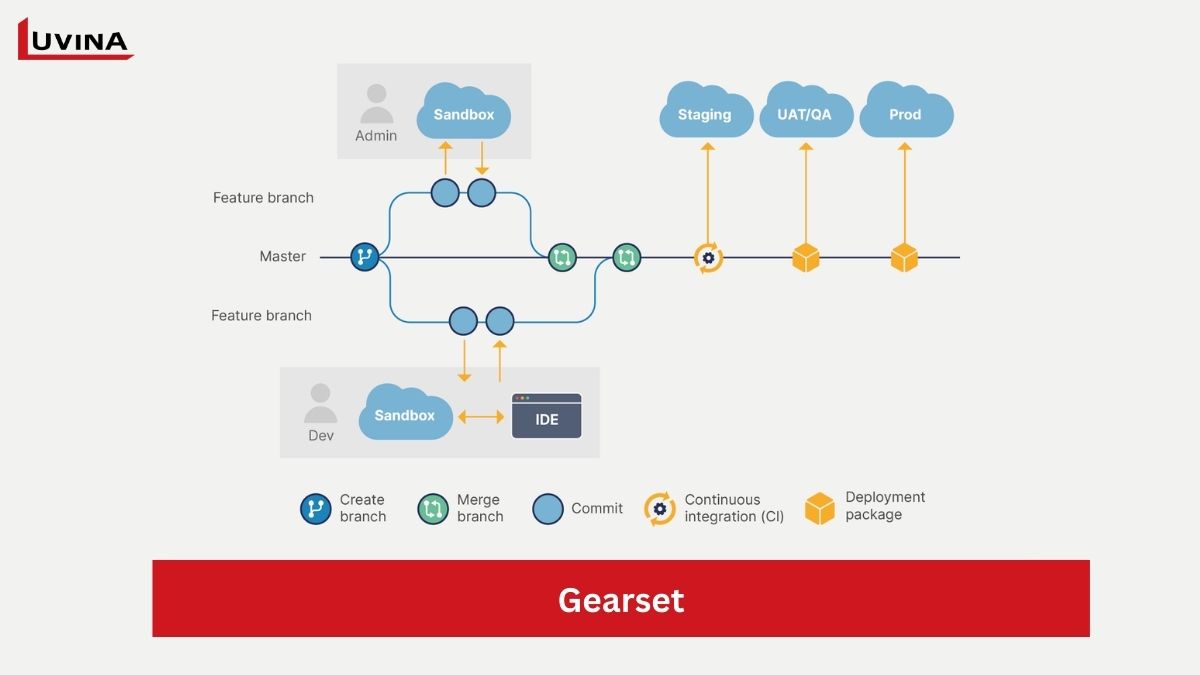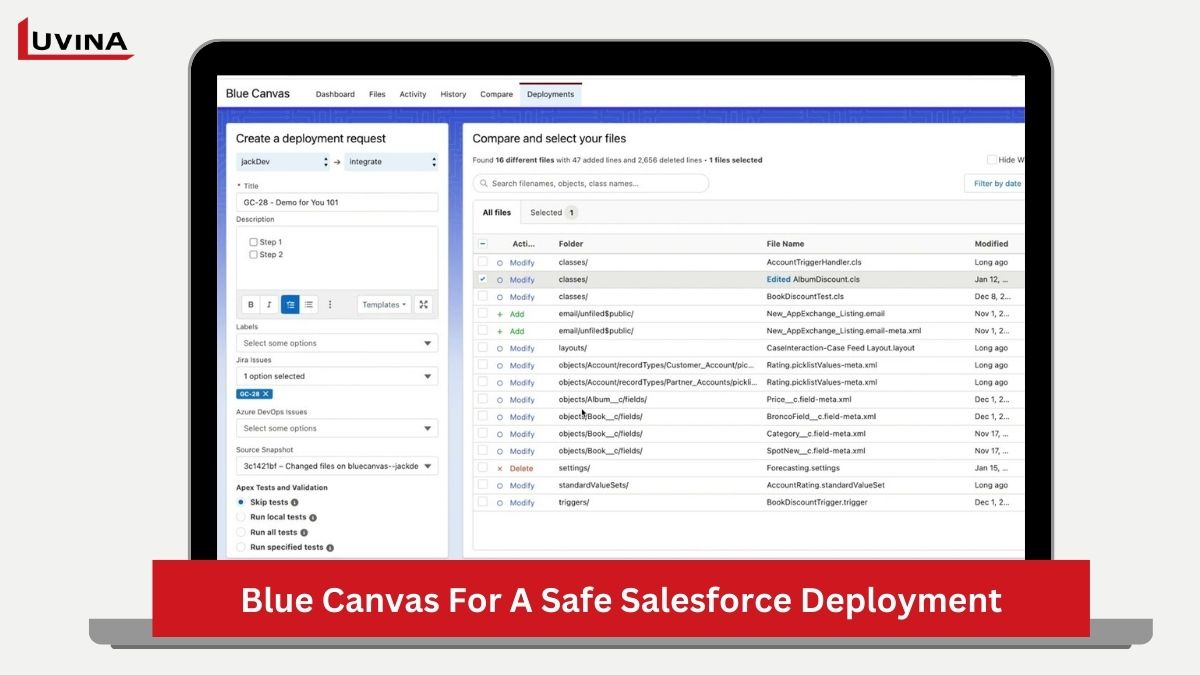The increasing demand for using Salesforce in businesses leads to the need for the platform itself to evolve to meet those business needs. That’s why Salesforce DevOps emerged, aiming to help businesses execute their business tasks quickly, efficiently, and securely.
While becoming more common in the Salesforce ecosystem, DevOps is still a relatively new concept. To better understand DevOps for Salesforce, let’s delve into the article below.
What is Salesforce DevOps?
DevOps is a collection of actions, methods, principles, etc., that help specialist teams build, test, and release software faster and more accurately. When combined with Salesforce, it forms the concept of Salesforce DevOps, simply bringing together developers, administrators, and those responsible for deployment, monitoring, and maintaining software or applications.

When the entire specialist team shares responsibilities in the software creation and release process, more effective communication makes the workflow smoother.
The Benefits of Salesforce DevOps
In any field, “communication is key,” and the development, release, and maintenance processes of applications are no exception. With the ability to improve communication and enhance collaboration among specialist teams, Salesforce with DevOps brings the following benefits:
- – Shortens the application and software development lifecycle, fostering innovation.
- – Reduces errors during deployment.
- – Accelerates the release of software and applications, boosting business operations.
- – Enhances the quality of software and applications, providing a better customer experience.
- – Enables fully automated distribution for accurate and continuous deployment.
- – Monitors and ensures the reliability of services.
- – Maximizes Salesforce ROI (return on investment).

Pillars of A Successful Salesforce DevOps
The Salesforce DevOps process consists of several small steps, requiring specialist teams to be constantly prepared and keep up with the pace. However, the success of this process also has its “formula.” Below are some essential pillars in the “formula for success” of the Salesforce DevOps strategy.
1. Version Control
Version control in DevOps with Salesforce helps track every change and task that each developer has performed. It allows multiple contributors to work simultaneously on the same 21 features. Version control makes it easy to review and debug code errors, reducing risks and avoiding unnecessary costs.
2. CI/CD Pipeline
The CI/CD Pipeline is a crucial pillar of Salesforce DevOps, automating the testing and validation of changes. The automation features provided by the CI/CD Pipeline for Salesforce help minimize manual errors while allowing the safe rollback of undesired changes. With the CI/CD pipeline, specialists can work on multiple projects and iterate quickly based on feedback without disrupting operations. As a result, the Salesforce development process is accelerated, delivering more value to customers.

3. Automation Testing
Testing is an integral part of Salesforce development. However, robust testing is essential for specialist teams to easily build reliable code. And the automation testing in Salesforce DevOps is the solution for this.
Automation testing will check changes when they are transferred to another environment or merged into the main environment. Changes will be thoroughly tested automatically before software deployment, saving a lot of time and effort. Additionally, automation testing reduces code errors, improves the quality of the Salesforce development process, and helps specialists focus more on building other important features.
4. Backup
To guard against worst-case scenarios such as data loss, data corruption, or Salesforce platform downtime, backing up customer and business data is extremely necessary.
With DevOps for Salesforce, backup is one of the fundamental pillars because it ensures that businesses can quickly return to normal operations. Salesforce DevOps allows monitoring and swift data restoration. Additionally, you can easily deploy backup data to a sandbox environment for testing.
5. Code Scanning
Code scanning is one of the essential pillars of a successful Salesforce DevOps process. It automates the manual code review processes within Salesforce.

Salesforce DevOps Tools
There are various Salesforce DevOps tools to choose from. If categorized by nature, they can be divided into native tools (those usable within Salesforce) and custom-built tools (you can create your own using different CI/CD platforms). If categorized by function, there are reporting tools, backup tools, CI/CD tools, version control tools, and more. Here are the 7 most popular Salesforce DevOps tools.
1. Copado
The comprehensive suite of Copado tools provides DevOps solutions specifically designed for the Salesforce environment. It seamlessly integrates with Salesforce to manage the release process, enable continuous integration, and automate deployment processes.
This tool features a version control system that enhances collaboration and productivity among teams. Additionally, Copado boasts powerful testing capabilities, reliable recovery features, and comprehensive governance and compliance management.
2. Gearset
Gearset is one of the favorite Salesforce DevOps tools among developers. It boasts a user-friendly interface and intuitive design, making the entire DevOps process for the Salesforce environment straightforward. Gearset offers a range of powerful features such as monitoring, recovery, automated deployment, and advanced data movement capabilities, ensuring smooth deployment processes, enhancing productivity, and reducing risks.

3. AutoRabit
AutoRABIT, with its automation capabilities, helps businesses accelerate the deployment and development processes of Salesforce. It is considered a comprehensive Salesforce DevOps platform with advanced testing capabilities and robust data backup and migration features.
4. Flosum
Flosum is a comprehensive and reliable DevOps platform with high scalability. Its version control system helps track and manage the complete development lifecycle. Automated recovery features minimize errors. Additionally, Flosum’s testing tool ensures quality for all Salesforce applications. Its security and compliance features help businesses maintain data integrity and regulatory compliance.
5. Prodly
Prodly allows easy Salesforce management without disrupting users. This tool visualizes changes to manage them flexibly and neatly for business operations without burdening IT. With the support of Prodly’s Salesforce DevOps tool, Salesforce teams can increase productivity by up to 80% and reduce risks by 30%.
6. Blue Canvas
For a safe and swift Salesforce deployment, you need the assistance of Blue Canvas. With this tool, you can deploy to sandboxes, and organize staging, and production with push-button deployment technology. Blue Canvas also empowers administrators and developers with full version control over Salesforce, ensuring safer deployment processes and higher code quality.

7. Jenkins
Jenkins is an open-source continuous integration software used for designing, deploying, and automating projects. With its extensive plugin ecosystem, this Salesforce DevOps tool has high scalability, able to adapt to various project requirements. Additionally, Jenkins simplifies continuous integration and continuous delivery processes to streamline development team workflows.
Summary
Hope this article has given you a general overview of Salesforce DevOps. With all this information, I believe you now have a Salesforce DevOps strategy and a plan for a suitable deployment process.
If you need help with Salesforce with DevOps service, please contact Luvina Software. As one of the leading experts in Salesforce in Vietnam, we are committed to providing you with the most suitable Salesforce DevOps solutions.
To learn more about Salesforce solutions, check out these additional resources:
>> Top 15 Salesforce Development Companies Worldwide
>> Decoding Salesforce B2B Commerce Cloud
>> Empower Your Business With Salesforce App Development Service








Read More From Us?
Sign up for our newsletter
Read More From Us?
Sign up for our newsletter